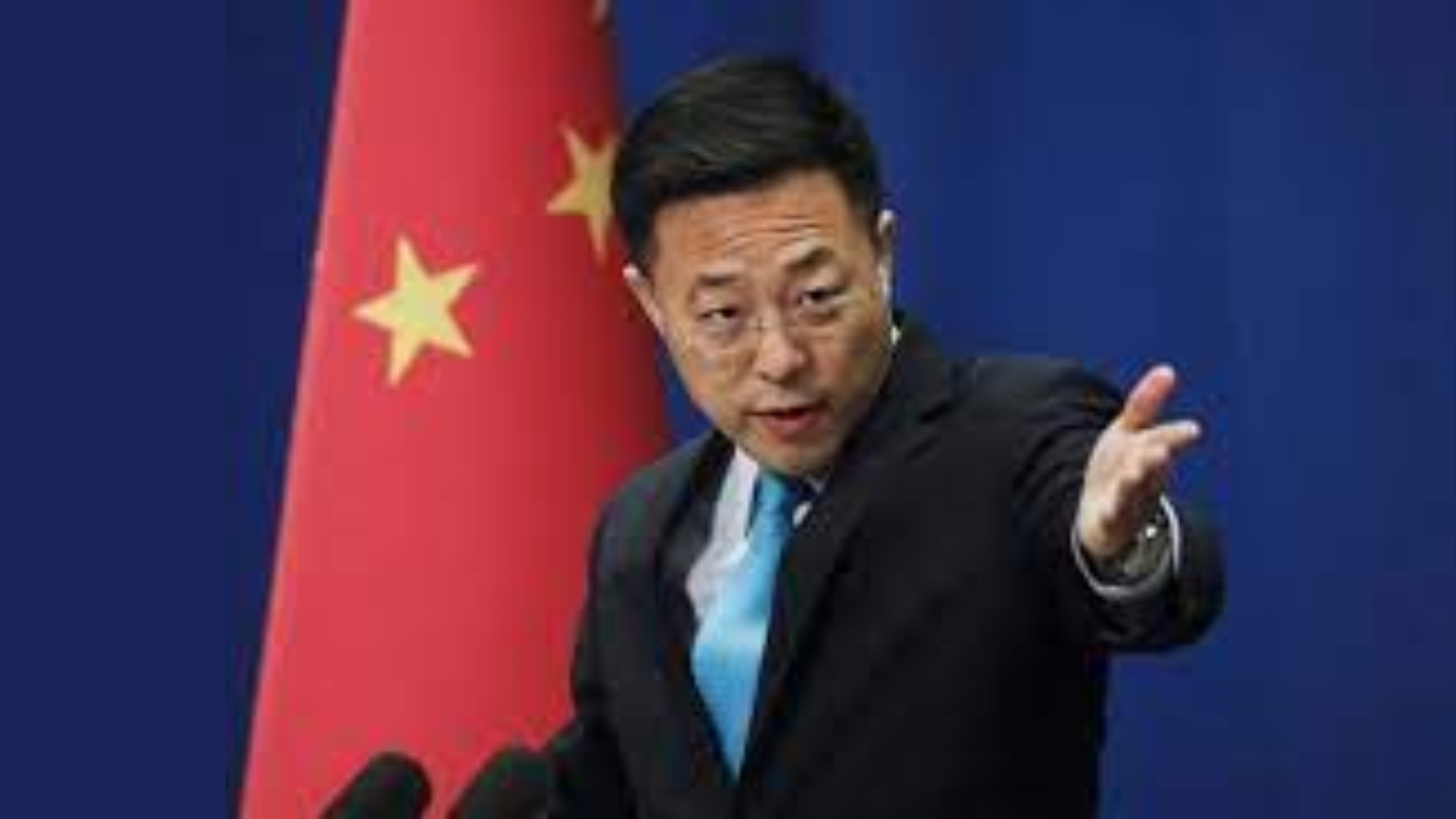
China’s Wolf Warrior Diplomacy explained in simple terms: A New Era of Diplomacy with Chinese Characteristics
In current years, the arena has witnessed a substantial shift in the manner China conducts its foreign coverage. The term “Wolf Warrior Diplomacy” has emerged as a brand new phenomenon in international family members, coined after the call of a famous Chinese movement movie franchise. This diplomatic approach, characterized via its aggressive and assertive nature, has gained interest globally because of its specific fashion and impact on worldwide affairs. This weblog aims to offer an in-intensity analysis of Wolf Warrior Diplomacy, its origins, key features, and its implications for worldwide relations.
Origins of Wolf Warrior Diplomacy:
The time period “Wolf Warrior Diplomacy” was coined in 2019 by a Chinese diplomat, Hua Chunying, who used it to describe China’s new fashion of international relations. The time period refers to a group of Chinese actors who played the lead roles inside the Wolf Warrior motion film series. These actors have been recognized for his or her strong and assertive characters, which inspired the name “Wolf Warriors” for this new style of diplomacy.
The origins of Wolf Warrior Diplomacy may be traced back to the 2018 Belt and Road Forum held in Beijing. During this forum, Chinese officers followed a more assertive and confrontational tone in their speeches, which marked a departure from the conventional gentle-spoken and conciliatory technique that China had observed within the past. This new approach became visible as a response to developing criticism of China’s Belt and Road Initiative (BRI) by a few Western countries, especially America.
Key Features of Wolf Warrior Diplomacy:
- Assertiveness: One of the maximum outstanding functions of Wolf Warrior Diplomacy is its assertiveness. Chinese officials have turned out to be extra vocal in defending China’s interests and the difficult Western grievance of its guidelines. This assertiveness is reflected in their speeches and statements, which often incorporate robust language and accusations towards other nations. For example, throughout a press conference in 2019, Chinese Foreign Ministry Spokesperson Geng Shuang accused Canada of “gambling with fire” over its arrest of Huawei govt Meng Wanzhou.
- Nationalism: Another key function of Wolf Warrior Diplomacy is its emphasis on nationalism. Chinese officials have increasingly highlighted China’s cultural background and historical achievements as a source of country wide pride and identity. This nationalism is contemplated in their statements, which frequently incorporate references to historic Chinese philosophers and ancient figures. For instance, at some point of a speech on the Belt and Road Forum in 2019, Chinese President Xi Jinping quotes Confucius to emphasize the significance of mutual respect and cooperation amongst countries.
- Digital Diplomacy: In addition to standard diplomatic channels, China has additionally embraced virtual diplomacy as a key factor of Wolf Warrior Diplomacy. Chinese officials have used social media platforms together with Twitter and Facebook to have interaction with overseas audiences at once, bypassing traditional media retailers that are frequently critical of China’s guidelines. This virtual diplomacy has additionally allowed China to unfold its message extra extensively and quickly than via traditional channels. For instance, at some point of the COVID-19 pandemic, Chinese officers used social media to disseminate statistics about China’s response to the disaster and sell its image as an accountable worldwide citizen.
- Multilateralism: While Wolf Warrior Diplomacy is frequently related to an extra confrontational approach toward Western international locations, it additionally emphasizes multilateralism and cooperation with other countries in regions inclusive of alternate, funding, and infrastructure improvement. This multilateralism is pondered in China’s Belt and Road Initiative (BRI), which targets to sell economic development and connectivity across Asia, Europe, and Africa through infrastructure tasks which include roads, railways, and ports. For example, during a speech at the Belt and Road Forum in 2019, Chinese Foreign Minister Wang Yi called for more cooperation amongst international locations alongside the BRI route to sell financial growth and development.
Implications for International Relations:
The upward thrust of Wolf Warrior Diplomacy has sizeable implications for worldwide family members in numerous approaches:
Challenges to Western Hegemony:
The assertive nature of Wolf Warrior Diplomacy poses a venture to Western hegemony in international affairs. By defending China’s hobbies more forcefully and challenging Western criticism of its regulations, China is asserting itself as a major participant on the global stage. This venture to Western hegemony is contemplated in the developing tensions among China and Western nations over issues along with human rights, highbrow assets rights, and territorial disputes inside the South China Sea. For instance, for the duration of a speech to the United Nations General Assembly in 2019, Chinese Foreign Minister Wang Yi accused a few Western nations of “double requirements” on human rights troubles.
Shifting Balance of Power:
The rise of Wolf Warrior Diplomacy additionally reflects a moving stability of strength in international affairs. As China’s financial and military power continues to develop, it is becoming increasingly assertive in protecting its pursuits in opposition to other predominant powers which include America, Russia, and India. This transferring stability of strength is in all likelihood to result in greater opposition between these primary powers over sources inclusive of oil, gasoline, minerals, and strategic locations including ports and air bases. For example, for the duration of a speech on the Shangri-La Dialogue safety forum in 2019, Chinese Defense Minister Wei Fenghe warned other countries no longer to underestimate China’s military skills or initiate it unnecessarily.
Impact on Global Governance:
The upward push of Wolf Warrior Diplomacy also raises questions about the future of world governance in an increasingly multipolar international order. As extra countries undertake similar strategies to foreign policy that prioritize their very own interests over multilateral cooperation or adherence to international norms and policies established by way of Western powers after World War II (inclusive of human rights or freedom of navigation), it becomes increasingly hard for any single u . S . Or grouping (along with NATO) to hold hegemony or leadership over worldwide governance institutions just like the UN or IMF/World Bank Group (which can be currently dominated by the way of Western powers). This could lead to in addition fragmentation or polarization within international governance establishments alongside ideological strains (consisting of between democracies versus autocracies), probably exacerbating current geopolitical tensions between foremost powers like US/China or US/Russia/China/India/and so forth., as opposed to selling greater cooperation or stability amongst them (as well as probably leading to in addition erosion or dismiss for worldwide norms/policies that are perceived as being unfairly imposed via Western powers). As such, it stays uncertain whether or not this trend closer to greater assertive kinds of diplomacy like Wolf Warrior Diplomacy will in the long run lead toward greater balance or instability inside international governance institutions over time (and whether or not any opportunity fashions for worldwide governance which can higher accommodate more than one views/hobbies from distinctive areas/civilizations will emerge).
The Bottom Line:
In the end, Wolf Warrior Diplomacy represents a new technology of diplomacy with Chinese traits that reflects both continuity with conventional Chinese diplomatic practices in addition to huge departures from them. Its assertiveness, nationalism, virtual diplomacy, and multilateralism are all key capabilities that distinguish it from conventional Western-style international relations. The implications for global relations are considerable, which includes demanding situations to Western hegemony, transferring balances of strength amongst essential powers inclusive of China, america, Russia, India; impact on global governance structures; growing tensions among China and Western countries over troubles together with human rights; intellectual property rights; territorial disputes; climate alternate; exchange liberalization; and so forth., all these factors will hold shaping worldwide relations for years yet to come. It remains to be seen whether or not this new style of international relations will lead to more cooperation or more war amongst major powers over the years or each!



